AudioCulture
The noisy library of New Zealand music
Te pātaka korihi o ngā puoro o Aotearoa
Hugh Lynn
This boom and bust of the 1980s decade would define the man, but Hugh Lynn’s entertainment empire, which included dance studios, nightclubs, a security company, concert promotion and a recording studio, had its roots in the 1960s.
Like many a rock and roll legend, Hugh Lynn was born during World War II. His mother, Dorothy Katipa, was an acclaimed ballet dancer and teacher known as Da Katipa. She also danced in musical theatre and at the Civic Theatre’s wartime Wintergarden cabaret, alongside Freda Stark. She soon had her five-year-old son winning the Auckland boys under-12 tap competition. The sartorial lad was pictured in the newspaper on September 1948 and Judge Miss Lily Stevens told him he was “excellent for his age.”
“I’d been in the entertainment business since I was three years old,” Lynn told AudioCulture in 2013. “I just continued but changed from theatre, dancing – ballet and ballroom – into rock and roll. I was in rock and roll dancing competitions when I was 13 at Benny Levin’s Rock And Roll Jamborees in the Auckland Town Hall and it was theatre.”
As a child, Hugh travelled to Australia to compete in international dance competitions. “I went to Australia to compete at nine years of age, in a TEAL flying boat – an eight hour journey – we landed in Rose Bay, Sydney where I was met by my grandmother Philomene Katipa Golloy,” recalled Lynn.
Being a successful dancer was not much fun at school. “It wasn’t cool being called a poofter and being beaten up at school,” recalls Lynn. “I got stick from guys at school for being a ballet dancer. I got harassed every day, it got so bad I had to wear army boots for the last three years just to try and protect myself.”
In 1958 Lynn turned 15 and left school. His first job was delivering telegrams. Following that he worked part-time at the Auckland wharves for three years. Running down to the wharves every day was part of his fitness regime. Lynn got into martial arts, weightlifting and volunteered to do three years in the NZ Army Territorials, serving 60 days per year.
Lynn continued to dance until he was 30 but he found a new identity at the age of 16, when he purchased a 125cc James two stroke motorcycle. “The first group I rode with was the “Mt Roskill Ghosts.” I was a dancer but I could dress up, put on these clothes and everybody would treat me differently,” Lynn recalled in 2001. “I met two of the first Hell’s Angels, when they first came out to NZ. That’s when my mother sent me over to Australia. Otherwise I probably would have become a patched member.”
As a compere at the Top 20 nightclub Hugh Lynn was billed in 1967 newspaper advertisements as “Hugo”, “Boffer Hugo”, “Crazy Hugo”, “Top 20 D.J. Hugo” and “Hugo, Top 20’s Crazy Compere.”
After six months working on a sheep station managed by his grandparents in Ararat, Victoria, 19 year-old Lynn returned to New Zealand and moved to Wellington where he worked at Silhouette Health bodybuilding studio. He got his first gig compering at a big band dance hall where, “the man walked across the other side of the hall to ask the woman for the dance.”
After learning to compere by watching Wellington’s Ian Saxon, Lynn returned to Auckland in 1964 for his 21st birthday party. He negotiated £25 a week (“quite a lot of money at the time”) to compere at the Top 20 where Christchurch groups Max Merritt and The Meteors and Ray Columbus and The Invaders played.
As a compere at the Top 20 nightclub Hugh Lynn was billed in 1967 newspaper advertisements as “Hugo”, “Boffer Hugo”, “Crazy Hugo”, “Top 20 D.J. Hugo” and “Hugo, Top 20’s Crazy Compere.” One advert featured a desperate plea from Hugo –“We are definitely in a mad panic. We average six girls to every boy. We need your help tonight. I can’t dance with all the girls.” If the message from Hugo was not incentive enough, the same advertisement’s giveaways were “free records and 400 free cigarettes.”
Phil Warren recalled Lynn working for him. “I loved Hugh Lynn fronting the Oriental Ballroom, he would dress up, he’d have a top hat on, he was in the foyer with a walking stick directing people ‘you can’t come in’, ‘you can come in’, and he could hold his own when the King Cobra gang arrived on the doorstep.”
Dancer to bouncer is not a well-trodden career path. In 2001 Lynn said, “I’d walk across the road for a fight, I’d walk across Queen St to get involved. After a while you realise that confrontation always leads to you getting hurt, but most of all, your clothes get ripped. As a bouncer you learnt there was an easier way, talk to them first. You could come home and all your clothes were there and you didn’t have to spend money on a shirt.”
When the owner of the Top 20 asked Lynn if he could get some guys together to provide security for the Pretty Things NZ tour in August 1965, Eden Security was born.
“In the beginning we got a free seat and we provided the men, which was a bit dumb, and eventually we got $4.50 for each guy,” Lynn told AudioCulture in 2013. “We never had uniforms then – we wore a T-shirt with a logo – and at The Rolling Stones at the Civic Theatre 1966, I got into a confrontation with a policeman. He didn’t know who I was and I didn’t know who he was. When The Rolling Stones came off the stage and they went to go in the Armourguard van, their man had locked the van and lost the keys. There were a series of mistakes and our profile got higher and we got better at doing what we were doing.”
A 1967 business card reads, “Lynn Agencies Company Limited” and lists three enterprises at 502 Dominion Road, Auckland: Eden Health Club, Eden Security and Eden Dance Studio. Lynn would soon add another name to the “Eden” brand – The Eden Go-Go Girls. There was even a print advertising slogan – “Eden For Everything”.
He even appeared on the C’Mon show himself when a male dancer was required, and danced country-style on Country Touch (1968-70), hosted by Tex Morton.
When Lynn wanted to start Go-Go classes at his mother’s dance studio, her response was, “You can’t do this! This is a serious dance studio.” Hugh recalls getting 10 people the first week and 20 the second week. He was soon holding four classes on a Saturday.
The Stratford Press (January 19, 1967) referred to Hugh Lynn as “New Zealand’s ‘Mister Controversial’.” While travelling overseas Lynn foresaw “the tremendous potential of Go-Go dancing” in New Zealand. Ahead of all competition, he created a Go-Go dance instruction course and in no time at all had captured the imagination of hundreds of Auckland teenagers who went Go-Going at one of his Auckland suburban dance studios. Taking the idea a step further, Lynn started his own Go-Go agency and was soon hiring out dancing girls to ballroom operators throughout all New Zealand. Lynn told the newspaper how he developed his “fun companies” into big business.
With the 1967 C’Mon music TV show bringing Go-Go dancing to the nation, a Taupo dance poster read “Plus the Eden Go-Go Girls from Auckland.” Hugh Lynn became a Go-Go mogul. He even appeared on the C’Mon show himself when a male dancer was required, and danced country-style on Country Touch (1968-70), hosted by Tex Morton.
In 1967 Hugh Lynn managed The La De Da’s but when the band moved to Australia, he stayed behind. At the age of 25, he married Georgia Lynne Ellis, another of Da Katipa’s dancing students. Their two daughters, Fleur and Misty, were soon dancing too. Their marriage lasted to the end of the 1970s.
The key businesses for Hugh Lynn in the early 1970s were Eden Security and his new T-shirt business Crazy Shirts. In 1972, Larry’s Rebels singer Larry Morris introduced Lynn to visiting American architect and artist Jim Stoneman. Lynn provided the financial backing for Crazy Shirts and Stoneman set up the screen-printing and retail business. The December 1975 Apparel magazine reported that Crazy Shirts had over 200 designs and 36 employees, with Larry Morris as Promotions Manager. The head office for Lynn’s enterprises became the three-story Crazy Shirts building at 305 Queen St (a few doors up from the Town Hall) and there were two smaller retail stores in the CML Mall and the Century Arcade.
Crazy Shirts moved into retailing skateboards in their flagship store and Tracks surf magazine was published on the premises. Lynn had an eye-catching fleet of Crazy Shirts vans – three Ford Escort vans and a Ford Transit van that featured in NZ Hot Rod magazine. In later years, Lynn would use a fleet of road-weary Bedford vans as a key part of his nationwide “street promotion” for concert tours.
In the 1970s the now-uniformed Eden Security became a regular presence at music events.
In the 1970s the now-uniformed Eden Security became a regular presence at music events. In 1973 Lynn’s security company worked at The Great Ngaruawahia Music Festival and The Rolling Stones at Western Springs. After the Festival, Lynn went into partnership with the co-promoter, Robert Raymond, to open the popular Levi’s Saloon in Customs St, Auckland, where Ticket were resident.
As the 1970s began, Hugh took his love of bikes off the road. “I loved Motocross, but 28 was too late to start. I should have started at 18. For seven years, I had a lot of fun.”
Lynn featured in a half page story in the NZ Herald Weekend Magazine (November 10, 1973) with the heading “30 year old Aucklander Hugh Lynn reckons he will be a millionaire by the time he is 35.” There are some classic Hugh quotes such as, “I am a working class man and will never be different. I will keep on wearing my jeans” and the story concludes with “I may be a millionaire by the time I am 35. But I shall probably owe two million.”
Eden Security did the 1974 Rod Stewart and The Faces show at Western Springs where the tension was backstage and on stage. “The band had asked for a Steinway piano. Phil Warren had put in a [baby] Yamaha,” recalled Hugh in 2001. “The Faces smashed the piano and poured alcohol on Paul Dainty and he got upset.”
The likely cause of the band’s anger was that the Australian promoter Paul Dainty had booked The Faces for an indoor concert fee. When they arrived in Auckland, they found that they were playing outdoors to a massive crowd.
Hugh Lynn was summoned to the Auckland Intercontinental Hotel to meet Paul Dainty and was asked to represent Dainty’s concerts in New Zealand. “In ten minutes he did the deal with me and told me to go and get a telex machine, two telephone lines and wait,” Lynn recalled in 2001. “The first telex I got through was to do with Rick Wakeman [March 16, 1975 at Western Springs] and I sent a telex back asking ‘Rick who?’ Dainty rang me and suggested I find out very quickly! That’s how I started. Dainty trained me. We did Rick Wakeman, Wishbone Ash, Joe Cocker, Bryan Ferry, David Bowie, etc.”
In 1975 Hugh Lynn formed Raynor Promotions, primarily to promote concerts for Australian promoters – Paul Dainty Corporation and then the Frontier Touring Company.
When Hotlicks editor Roger Jarrett interviewed Hugh Lynn for the April 1975 issue, he wrote: “A large rambling old home in Dominion Rd is the headquarters for Eden Security as well as part gymnasium and ticket office. Hugh Lynn is affable, drives a yellow Ferrari Dino. ‘Not from rock show profits,’ he assures me. There hasn’t been any since his recent appointment and on records of show patronage I have no reason to disbelieve him. He admits to being a novice promoter with a healthy outside income.”
Hugh Lynn became the public face of the outdoor concert industry, as the other promoters avoided the limelight. Hugh explained the challenges to Hotlicks: “For Western Springs the staging alone is $7,000. Over $15,000, that’s just for setting up. Then there’s the act’s fee and airfares across the Tasman. Paul Dainty is concerned about the calibre of show here so we have to bring out sound from Australia – six tons of it. It’s almost not profitable, you only have to make one mistake and there’s no profit at all. You need 7,000 people to cover costs. You put six weeks preparation with four people preparing the sound, accommodation, lighting and advertising etc. You get 3,000 people at Western Springs and lose $20,000.”
Lynn criticised the traditional bogus reasons given by promoters for concert cancellations: “If acts can’t get in because of an immigration problem, why say people are sick? I don’t think other promoters are being honest about this.”
"We’ve had hundreds of people saying they were going to go but they didn’t bother to book. That’s like wanting to go out with a girl and never ringing her."
– Hugh Lynn
When he was asked to explain why the Bad Company concert had been cancelled, he showed an early mastery of the Hugh-only analogy: “The main reason for cancelling Bad Company was simply that there were 250 pre-sold seats. We’ve had hundreds of people saying they were going to go but they didn’t bother to book. That’s like wanting to go out with a girl and never ringing her. 2,000 pre-sold tickets would have seen Bad Company here.”
Then Hugh Lynn had to handle the big issue, the mid-70s escalation in ticket prices. “The outdoor venue will probably stay around five dollars. Roxy Music [at the Auckland Town Hall] was $6.75 and it was either that or not have them play here, it’s that simple.”
By the end of the 1970s, Hugh Lynn was primarily a concert promoter with an emerging interest in recording New Zealand music, after the acquisition of the historic Mascot Studios in 1979.
In 1976 Lynn purchased Blacksheep Jeans with a factory in Ranui from dancer/choreographer Mary Jane O'Reilly. “I got into clothing, I got into stuff I didn’t know about,” recalls Lynn. He soon had union problems, supplier problems and hundreds of pairs of unwearable jeans, due to a cutting error. By the end of the 1970s. Crazy Shirts was closed. Lynn moved his office to Mascot Studio, 34 Charlotte Street, Eden Terrace.
During the 1970s Lynn leased Mojo’s nightclub, on the corner of Queen and Wakefield Streets, from Phil Warren. The club featured drag queen act Les Girls. “We had it as a drag show right from the start,” Lynn recalled in 2001. “We lost a lot of money initially and then we put sly grog in there and then we got a base of people who wanted to go out and have a drink. At Mojo’s we tried selling alcohol in a glass and it didn’t work. So we started selling half bottles, because people could take them and put them in their pocket and go through the process of taking the bottle out under the table and pouring it. That’s what they were used to, hiding it and drinking it.”
Lynn used his seedy Mojo’s nightclub for some touring events, including a Roxy Music reception. According to David Herkt’s Queen City: A Secret History of Auckland, “sailors from ships would queue on the back stairs for other ‘entertainment’ purposes.” One of the drag queen stars of Les Girls, Pat Crowe, joined the staff of Lynn’s Raynor Promotions. “I found out that Pat had a deep interest in theatre,” Lynn told AudioCulture, “He worked with me in the early Dainty days as a tour manager.” Lynn loaned Crowe to Hello Sailor to be their Camp Mother during their Los Angeles stay in 1978.
Leone Sakey, another former dance student of Da Katipa, worked in the Crazy Shirts retail store in the 1970s and became a PR assistant to Lynn. In the 1980s Sakey was his partner and a powerhouse publicist for the tours and for Herbs.
After Mojo’s the venue became punk nightclub Diamond Dogs for a few weeks in February 1978, but Lynn did not comprehend punk: “We were the first punk club to open. I sat there for two weeks and I had difficulty understanding everyone’s attitude. Everyone was so pissed off and angry and I couldn’t relate to it. We went from punk rock to Gobbles Disco and that went through the roof.”
Hugh Lynn became the master at marketing Western Springs Stadium concerts with his grassroots promotion style.
Hugh Lynn became the master at marketing Western Springs Stadium concerts with his grassroots promotion style. For a big show Lynn aimed to bring in "at least 15,000 people from outside of Auckland”.
A presence in provincial centres via “street promotion” was part of Lynn’s plan. “I did a lot of work outside Auckland. The painted vans were very effective, with four or five people coming into town wearing the T-shirt, putting posters in shop windows, flyers in the dairy and creating quite an buzz. It got people talking. There were no poster companies.”
In a regional centre, Lynn wanted tickets on sale, local radio on-side, charter buses, posters, etc. “You needed to know ticket sales and talk to the ticket-seller about the buzz to measure the impact of adverts and to tweak it throughout the country.”
“I argued with the Australians,” Lynn reflected. “They were depending heavily on television. I don’t believe you can promote successfully by just using one or two mediums. I aimed to communicate with the public fifteen different ways. I thought rock and roll was an extension of the circus, with fliers, posters, etc.”
“I always kept a record of each show’s sales, I was able to explain to the band management from past shows, that this was the trend. You may sell 10,000 in the last week or you may sell 25,000, it’s a matter of building up the momentum. I think I still hold the record for paid admission.”
1983 was a big year for Lynn and it was to end with a full-page colour advertisement in USA music industry magazine Billboard proclaiming: “Nov 26, 1983 David Bowie makes history Down Under” with a photo of the 82,500 Western Springs audience.
But on June 19, 1983 Lynn was arrested. “I got busted on my 40th birthday,” he recalled in 2001. “They found me with some packets of speed. We went to depositions and I felt really annoyed because they’d spent such a long period of time saying I was an international drug dealer bringing it in by submarine and now they were getting up in front of a judge and saying I was a street dealer! When they arrested me for supply, the law stated that you had to have 56 grams of methamphetamine to be considered a dealer and I had five grams. The police when they arrested me for supply knew that they had no case, but they did the damage, it went in the newspaper.”
“I never tried to hide that I took drugs,” said Lynn. “I took speed to keep awake. I didn’t realise the damage it was doing, because speed is very powerful drug, it ends by taking you out into spaces of times that are very unusual. I never drank alcohol at all.”
After the success of the David Bowie concert, “Australian promoter Michael Chugg – who I met as a tour manager for Dainty – approached me about doing Frontier in New Zealand,” recalled Lynn. “It went along quite well for a bit and then Dainty became uncomfortable. They’re in direct competition in Australia, at each other’s throats, and it became too complex to do.”
Lynn's worst concert experience was the “Thank God It’s Over” free concert in Aotea Square for Radio Station 89FM in December 1984 with Herbs, The Mockers and DD Smash.
Lynn's worst concert experience was the “Thank God It’s Over” free concert in Aotea Square for Radio Station 89FM in December 1984 with Herbs, The Mockers and DD Smash. The event resulted in the infamous Queen Street Riot. “When the inspector came up on stage and said, ‘Stop the show!’ I said to him at the time, ‘That’s the worst thing you can do!’ When you stopped the music, the attention diverted away from the music to this other show that was the riot that was building. So 5,000 people immediately turned and faced the other way and now there was a new entertainment going on. I noticed people becoming excited when the riot was on and joining in. I saw Friday shoppers, watch people throwing bottles into buildings and look at each other and join in. It was mass behaviour. It was fun for lots of people.”
Despite the ludicrous attempt to pin the blame on Dave Dobbyn, the Aotea Square debacle led to positive changes in police attitudes to concerts and concert promoters. Lynn told AudioCulture in 2014 that “Sometime after the riot in Queen Street I was asked to meet with the Prime Minister David Lange out in South Auckland. Will Ilolahia was also there at the meeting. Lange activated the change and brought the police into the game and we then started to work together with all the local authorities.
“Inspector Tim Masters came in and it was his job to get it all together. With concerts, people had to work together – policemen, traffic, City Council – but no body was talking to each other. We had a pre-production meeting and then after the show they sat down and went over how everything worked and it started to become smoother.”
One of Lynn’s biggest concerts for Frontier tours was ZZ Top at Western Springs (March 14, 1987), where the co-operative attitude from the police averted a potential disaster. Lynn approved of their decision to remove Black Power gang members.
“Yes, the Police had come and talked to me,” he recalled in 2001. “The police got worried that the Black Power were getting too close to the Mongrel Mob and that confrontation was starting, so they moved in and split them up and pushed Black Power out purely because they were closest to the fence. They actually hadn’t caused any trouble. The Black Power went and I gave their money back, I paid out $5,000.”
By the end of the 1980s, Australian concert promoters Paul Dainty and Frontier Tours had both left Hugh Lynn’s Raynor Promotions. The over-the-top concert attendance figures of the 1980s were never repeated, although some 1990s concerts were sell-outs, but the number of tickets sold (and noise levels) at Western Springs were restricted and many concerts moved to the smaller Mt Smart Stadium. Australian promoter Michael Chugg told Graham Reid (elsewhere.co.nz) that by 2000, “if we pulled 30,000 in Auckland it was a monster crowd.” (Jan 17, 2011)
His passion was for making music in Mascot Studios, which he acquired in 1979, and managing and recording Herbs.
Selling concert tickets may have been Lynn’s day job in the 1980s but his passion was for making music in Mascot Studios, which he acquired in 1979, and managing and recording Herbs, through whom Lynn would rediscover his Māoritanga.
“Mascot Studio was good but we spent far too much money going from 16-track to 24-track,” said Lynn in 2001. “It was a business where I didn’t really understand the technical part of it. We spent hundreds of thousands of dollars. It was probably the wrong move. I enjoyed learning about it all and we were instrumental in assisting a lot of Māori acts.”
“I was naïve with the studio,” Lynn reflected in 2014. If I had known more about recording, I would have recorded a lot more. Herbs would have recorded 15 albums. I did not understand the power of song publishing, even though I worked with Michael Gudinski of Frontier Touring/Mushroom Records who knew the long-term business. I was a short-term operator – I’d get an idea, promote it and it would finish.”
Mascot recorded acts for Lynn’s Warrior label, including Mantra and Diatribe. Lynn was pleased to have Dalvanius Prime record the Patea Māori Club at Mascot as his goal was to see more Māori musicians recording. “I just let Dalvanius come in and record and pay me later.”
Mascot Studios also helped launch bands like Penknife Glides and The Swingers. Lynn liked the recordings made by Penknife Glides in his studio and the single ‘Laugh Or Cry’ b/w ‘Taking The Weight Off’ became the first release on Warrior Records. Lynn also gave Penknife Glides the three opening spots on The Police tour of February 1981, but more often than not Lynn chose Herbs to open on his international tours.
Lynn gave The Swingers free reign in the studio. “It was a vote of confidence by Hugh which was very inspiring to us as a band,” Buster Stiggs said in 2014. “And ‘One Good Reason’ is what we wanted to sound like. It is way better than the one we did in Sydney.”
In January 1986, Lynn was a co-founder and co-chairman, with Taura Eruera, of Whare Tapere Trust (translates: house of entertainment), which aimed to bring more Māori into all levels of the entertainment industry. Jo Cameron, the sister of Herbs guitarist Dilworth Karaka, was the driving force behind the Whare Tapere Trust. Māori road crew were trained by touring with Herbs and new recruits got a start as loaders at the Western Springs concerts.
“With Herbs, it was a part of me being a born again Māori,” Lynn said in 2001. “There were a lot of social issues with Herbs as well as music, dealing with an indigenous band that was starting to write their own music. I saw the band as having a social message. There hadn’t been a contemporary Māori band that had emerged.”
Before Lynn, assisted by their original manager Will Ilolahia, could take Herbs to the Pacific, they had the challenge of getting a “Māori reggae band” booked in rock venues like The Windsor Castle and The Gluepot in Auckland.
“When we were travelling around the Pacific, we were saying ‘You can do it!’ Meaning, the man in the street, the indigenous person, the tribal person can do it. There’s something to say. This is a way of getting your message across, by music. The power of music is immense and that really became apparent with Herbs.”
Coinciding with Māori Language week in July 1986, Lynn toured Herbs, Ardijah, Dread Beat and Blood and Aotearoa on a six city North Island tour.
The 1980s saw Herbs achieve a long list of milestones – What’s Be Happen? in 1981; ‘French Letter’ and Light Of The Pacific in 1982; Long Ago in 1984; ‘Nuclear Waste’ in 1985; ‘Slice Of Heaven’ with Dave Dobbyn, a Pacific Islands tour, the Hiroshima Peace Festival in Japan and Australia in 1986; the unique Ruatoria 1987 launch of Sensitive To A Smile; and in 1989, recording and touring with Joe Walsh and recording ‘Parihaka’ with Tim Finn.
In 2014, Lynn looked back on the band that he is now synonymous with. “There was always a balance with Herbs – a money profit and a social profit. Often I made mistakes there – where it cost me a lot of money – but there was a social profit. When I look back I lost a fortune on Herbs. One could say that I over-produced Herbs.”
Coinciding with Māori Language week in July 1986, Lynn toured Herbs, Ardijah, Dread Beat and Blood and Aotearoa on a six city North Island tour that played large venues including the Wellington Town Hall and the Logan Campbell Centre. “I was starting to get into more things Māori and I decided to put a show on the road of all things Māori,” Lynn told AudioCulture in 2014. “I think we were doing 1,000 capacity venues. We came out of it with a profit.”
The groups played to sizeable crowds, allowing Ardijah to build their profile prior to the release of their 1987 debut album. As MC, Aotearoa’s Ngahiwi Apanui summed it up with his introduction of the headline act: “For so long they have been holding the torch high for Māori and Polynesian music – New Zealand’s premiere band, Herbs.” (Rip It Up August 1986)
After promoting 46 international tours in New Zealand in the 1980s, the overworked and over-achieving Hugh Lynn finished the decade having lost his cash-cows: his local representation of the Australian concert giants The Paul Dainty Corporation and Frontier Touring.
Following the launch of John Dix’s book Stranded In Paradise (1988), Lynn planned an ambitious eight show concert series celebrating 35 years of Kiwi Rock 1955-1990 at Carlaw Park in Auckland for January/February 1990. Ticket sales were dire and only the first concert, on Saturday January 13, went ahead. Johnny Cooper, Mark Williams, Max Merritt and The Meteors and Dinah Lee wowed the tiny crowd of 200. Booking Carlaw Park for the series was a massive blunder and the remaining concerts were cancelled. Some of the other concerts planned were BLERTA & Friends, The Best of Flying Nun and 10 Years Of Herbs.
Hugh Lynn had grown tired of the entertainment business treadmill by 1990, but whether he stepped off or fell off the treadmill is not clear. Eden Security wound up Lynn’s Raynor Promotions Company and the Herbs album ‘Homegrown’ (1990) was one of the final recordings completed at Mascot Studios.
In the 1990s Lynn retreated from the music business, got out of Auckland for a time, and travelled overseas. Hugh Lynn was initiated into the Subud spiritual brotherhood on August 3, 1992. “This changed my life and my view of the world,” said Lynn in 2014. “In lots of ways, this was also tied up with my Taha Māori feeling of becoming more Māori. The two were intertwined.”
When it became apparent in 1991 that his mother had Alzheimer's Disease, Hugh Lynn became caregiver and moved into her home in the years prior to her death in early 2000.
Lynn became captivated by Indonesia after his first visit in 1995. In 2001 he met his wife Murianti at the Wisma Subud compound in Jakarta. They were married in Jakarta in 2002.
In Indonesia Lynn has been involved in projects to secure more English language books and a fish breeding initiative in a poor village. He has also participated in the Denis O’Reilly and Joe Walsh 2004 and 2011 initiatives to oppose methamphetamine use and promote treatment for addiction while bringing the Black Power and Mongrel Mob gangs together.
Lynn is the present Chairman of Parihimanihi Marae, Waiherere, the birthplace of his mother and the final resting place of his grandfather, Haua Harawera Katipa (died 1968) and great-grandfather Himiona Katipa (died 1936). He is also involved in the “Afrika Speaks” project, founded in Zimbabwe in 2001 to assist young people to express themselves through art and music.
Hugh Lynn now lives in Gisborne where he is involved in Treaty of Waitangi settlement issues. He continues to be active in music via the reissue of Herbs recordings and his passion for the advancement of the music of indigenous cultures.
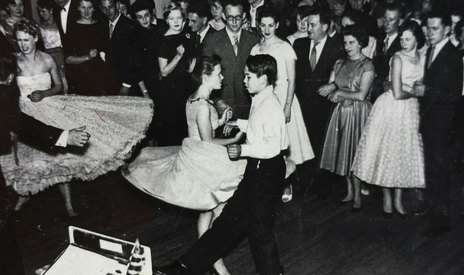
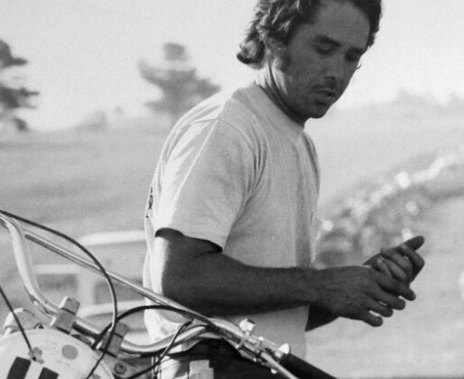
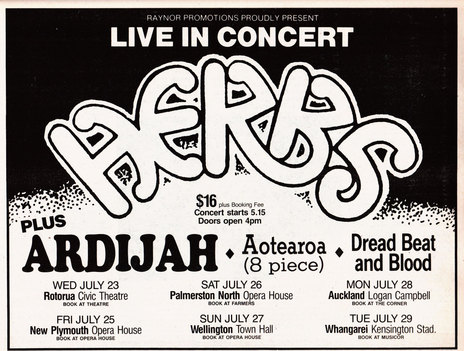
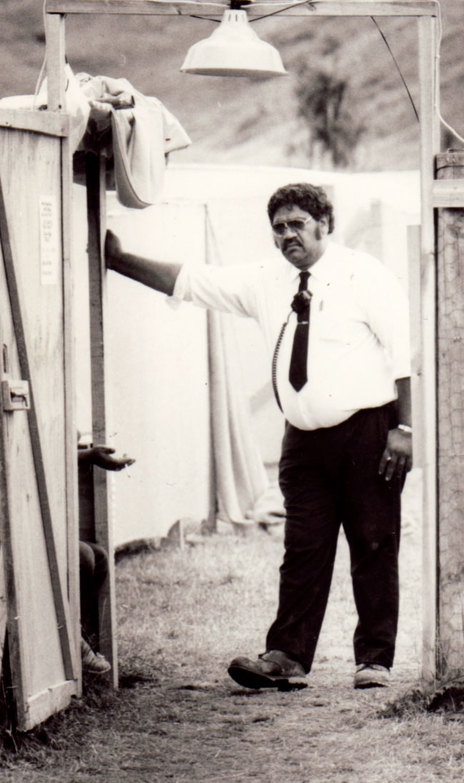
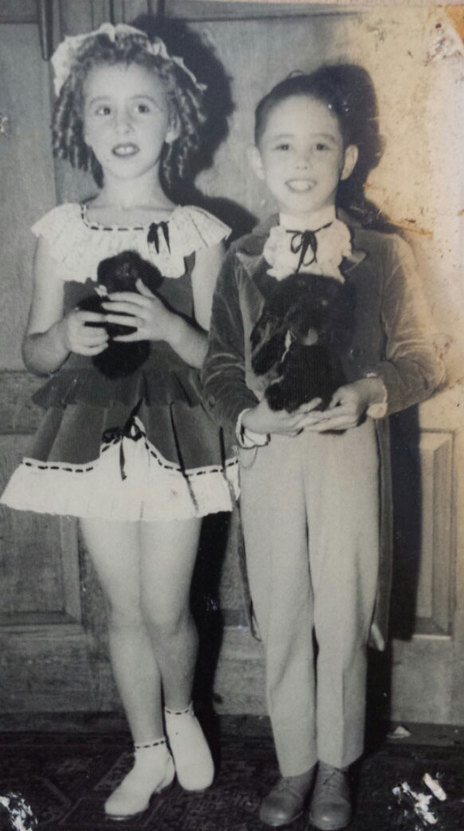
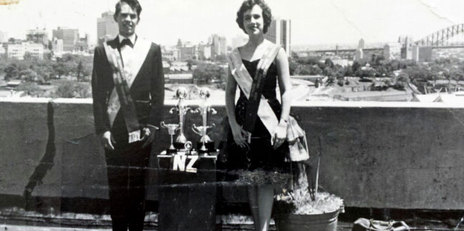
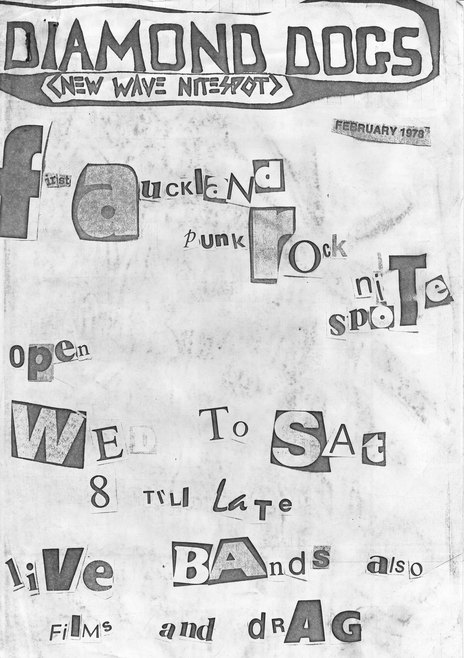
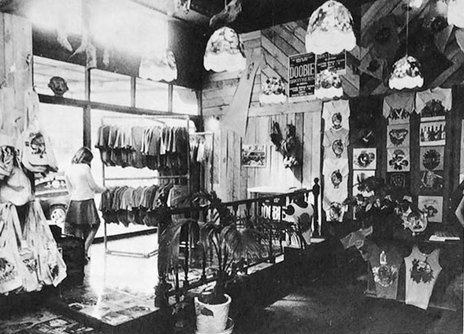
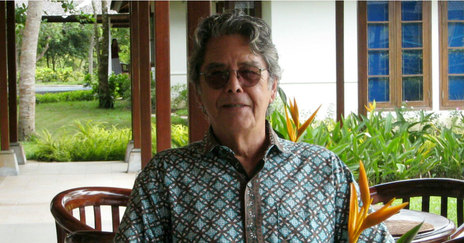
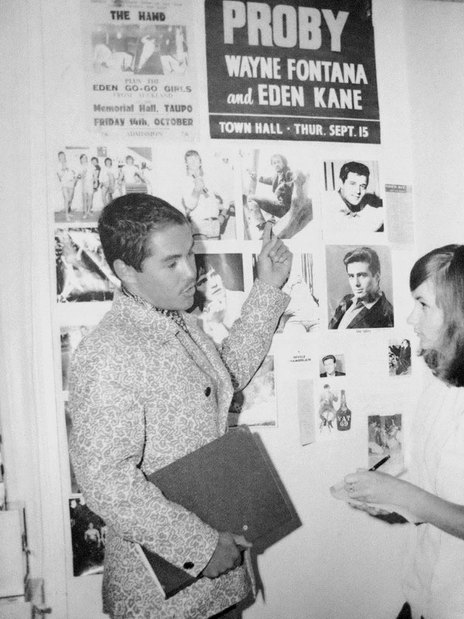
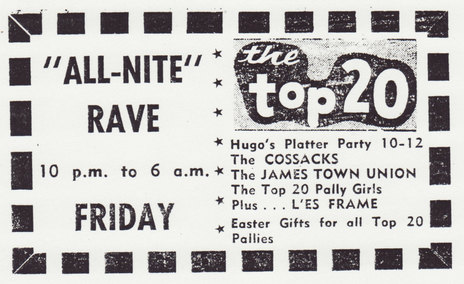
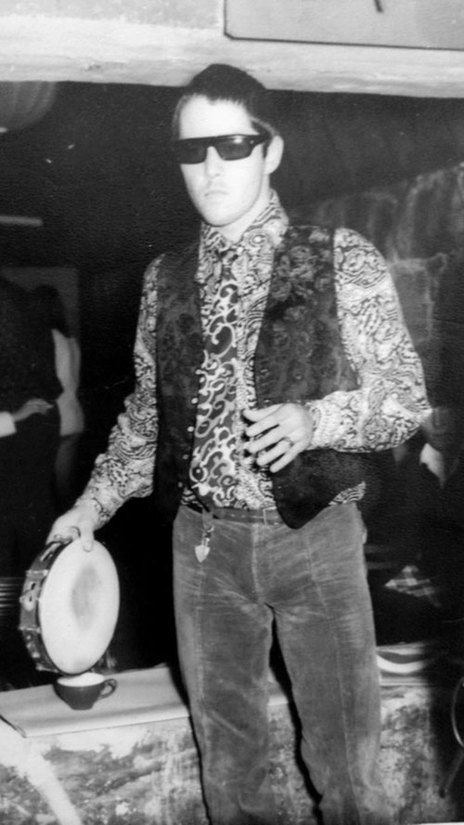
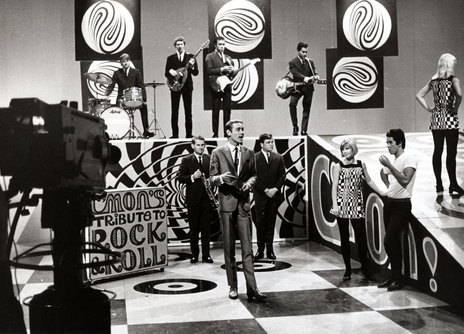
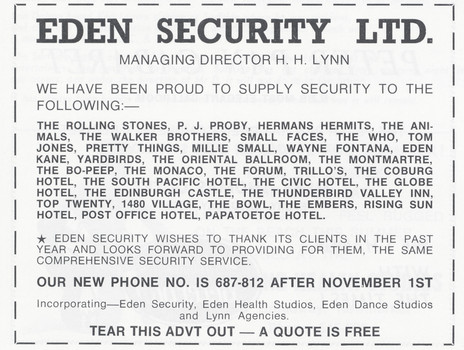
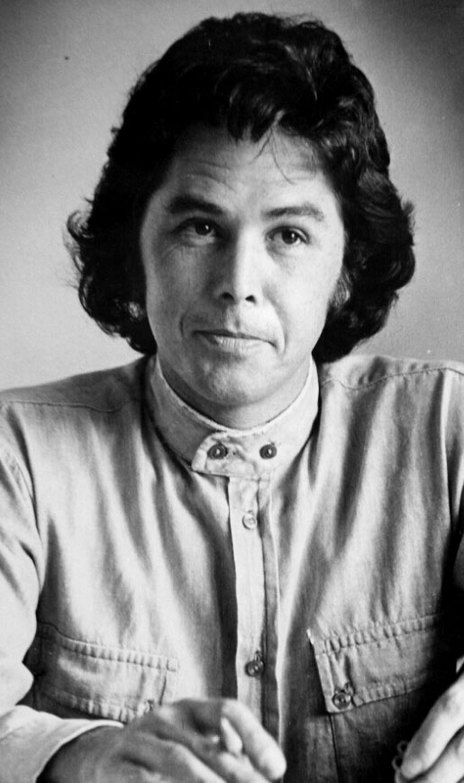
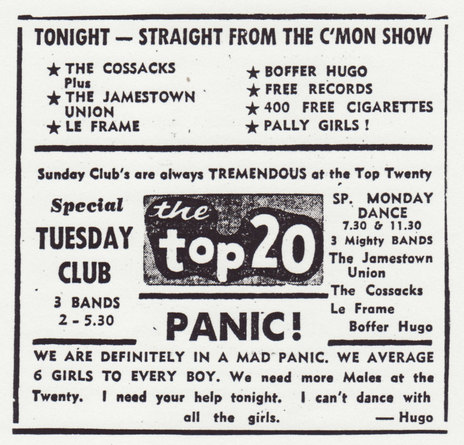
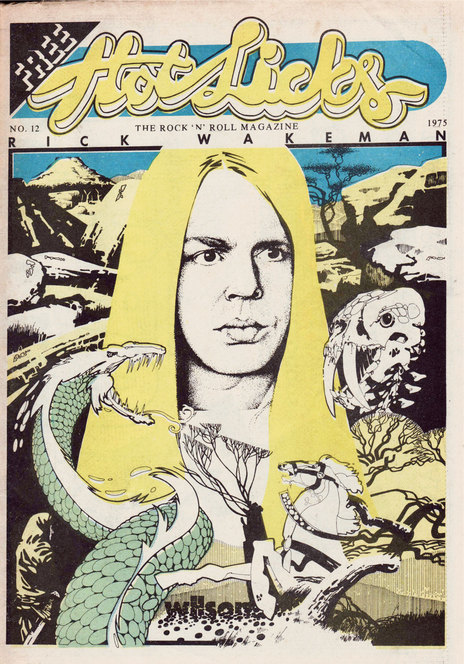
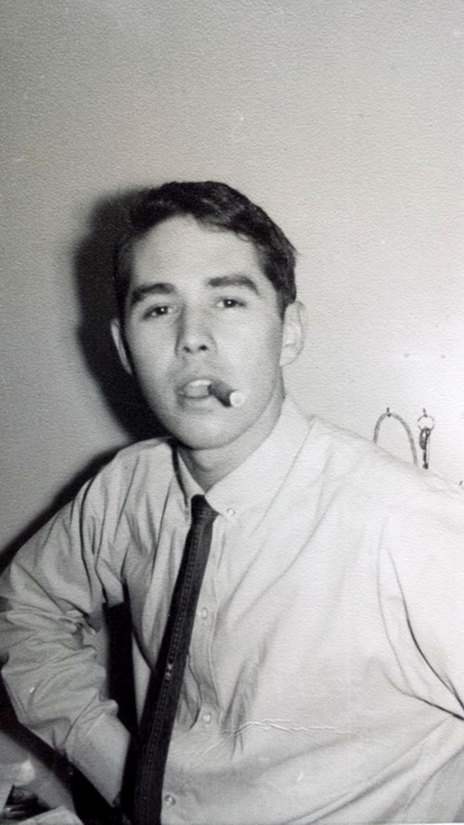
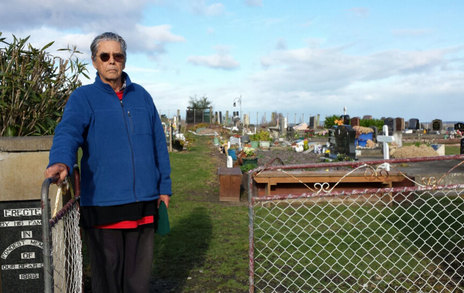
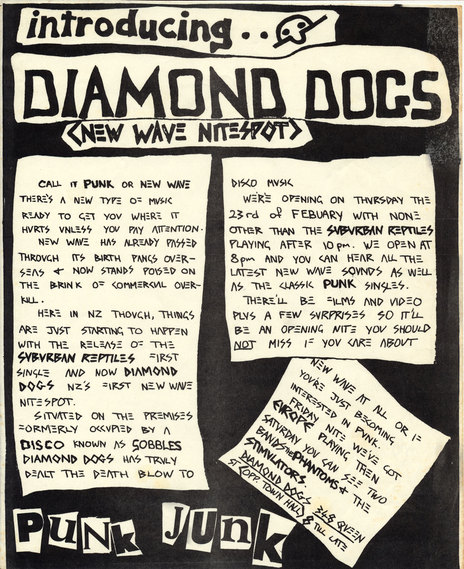
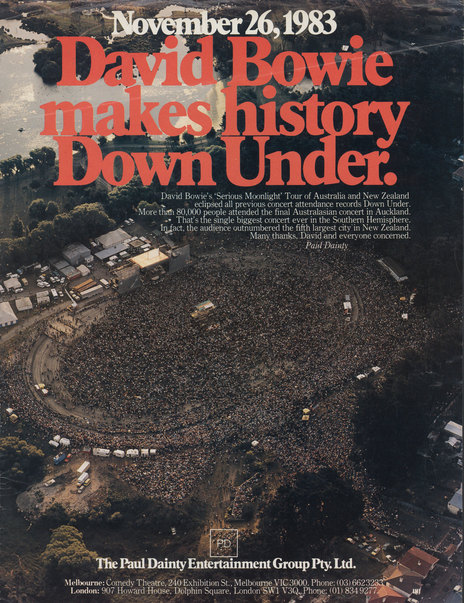
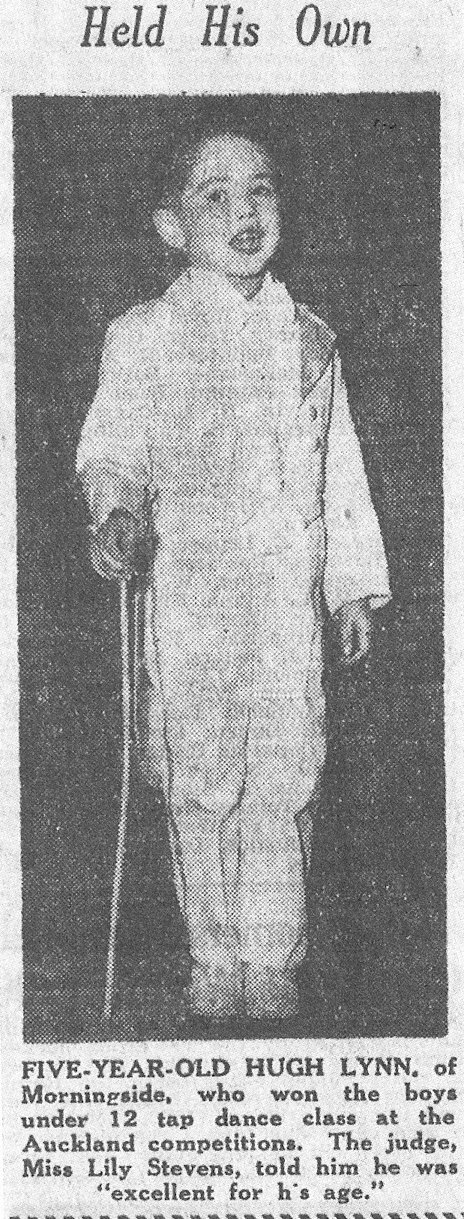
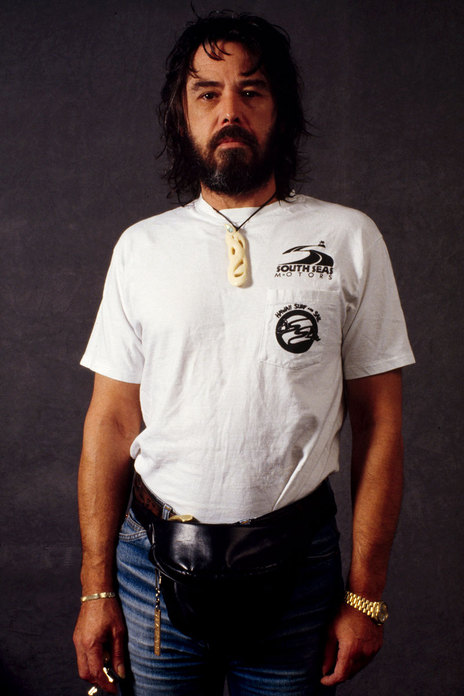
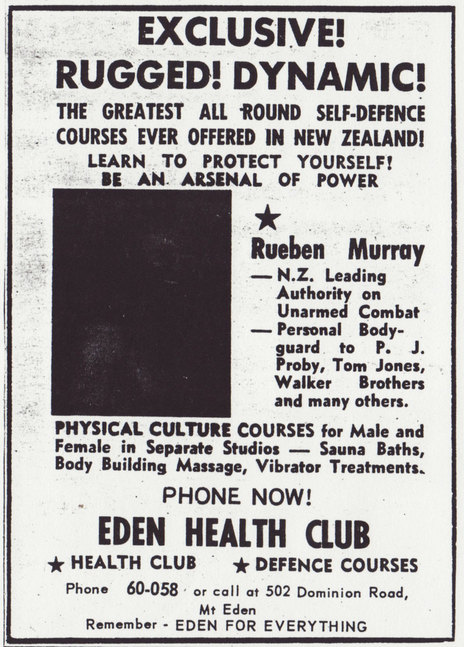
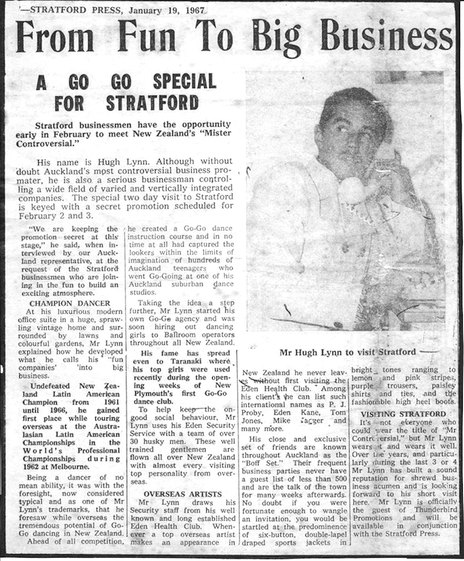
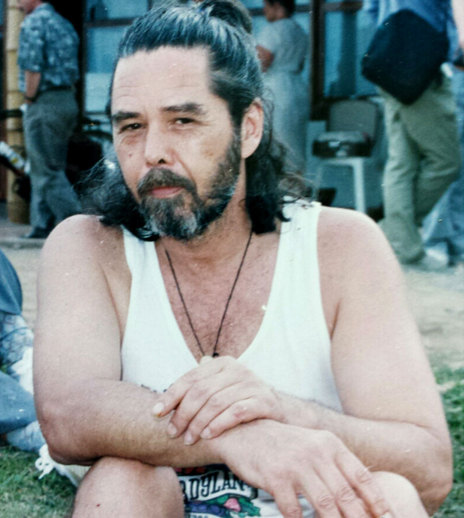
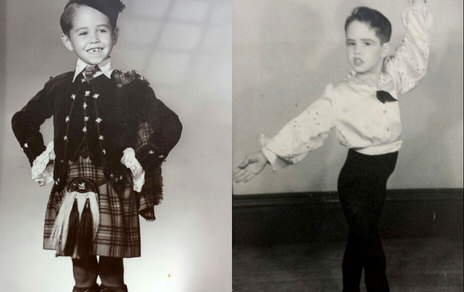
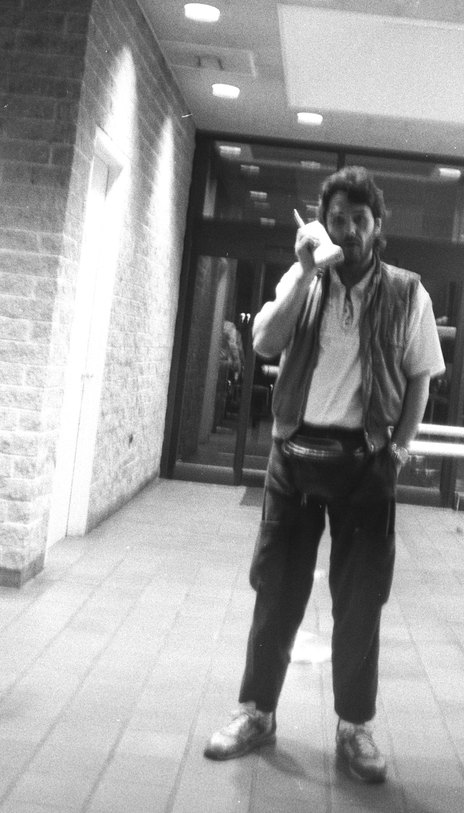
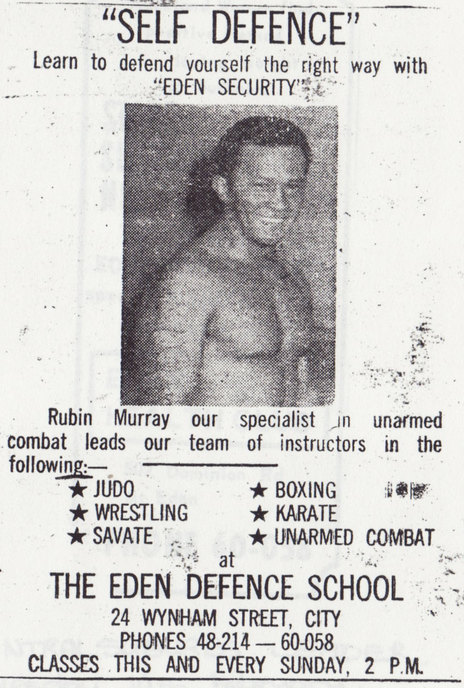
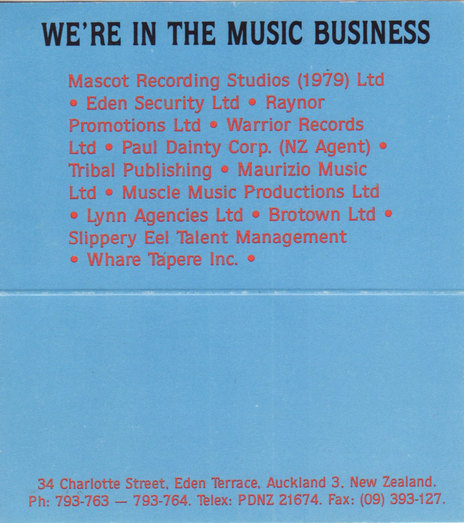
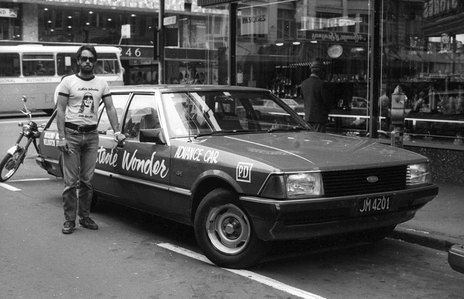
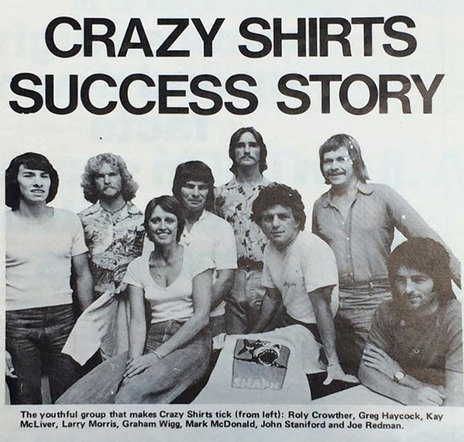
Hugh Lynn was the undefeated New Zealand Latin American Champion from 1961 to 1966. In Sydney in 1964 Lynn and dance partner Pamela Hotchkins were placed 6th in the world in Latin American at the World Amateur Ballroom Championship.
When Eden Security required only one man for a job, it was the gentle giant Alby Carr who would politely ensure that the guest list was observed at music industry events. Carr worked for Hugh Lynn for 20 years and he was also Lynn’s archivist, regularly stowing copies of all concert posters, ephemera etc, safely under Lynn’s house.
One of Hugh Lynn’s lower profile businesses was a guard dog training school. The Gorseland Kennels were run by two former police dog handlers.
Visit our sister site
NZ On ScreenMade with funding from
NZ On Air